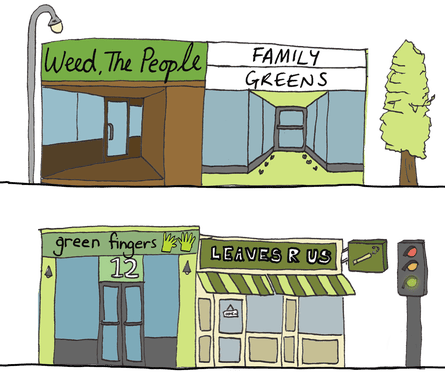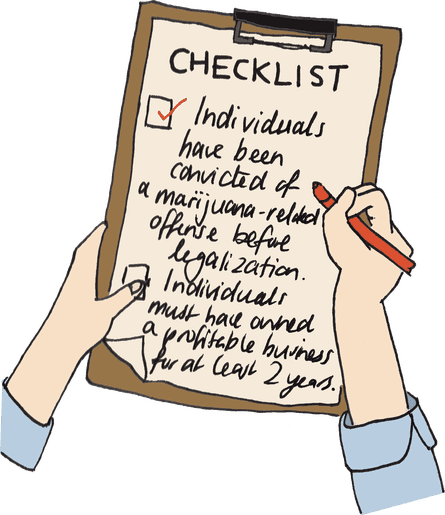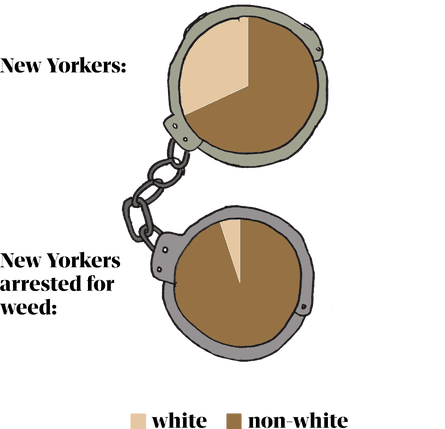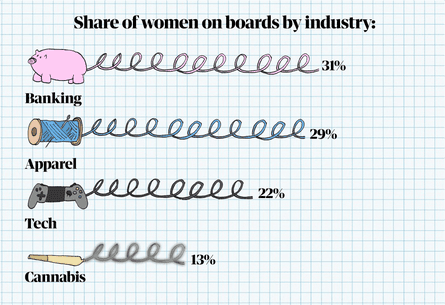In March 2021, Governor Andrew M Cuomo signed a new law that legalized adult possession and use of cannabis in New York state.

Two years later, there are only 23 legal weed dispensaries. Why have so few licenses been granted? New York wanted social equity to be at the heart of who was profiting from the change in law. The first licensed dispensary for recreational cannabis in New York is run by Housing Works, a non-profit that provides housing and healthcare to people living with HIV and Aids.

The state prioritized people and their families with prior cannabis-related convictions for licenses. But lawsuits and administrative issues have delayed the process.

Meanwhile, the way that police have responded to weed has continued to contribute to racial injustice.

When weed was legalized in other states, the people who profited were overwhelmingly white men. Seventy per cent of the top executives at the largest cannabis companies in the US are white men.

As delays have piled up, the illegal marketplace has flourished. There are about 1,500 unlicensed retailers in the five boroughs and NYPD enforcement teams have been given newly expanded powers to crack down on unlicensed cannabis shops.

Those unregulated stores are dangerous – when their products were tested, 40% of them contained pesticides, E coli, salmonella and/or heavy metals. In September 2023, New York state’s cannabis control board voted to expand access to license applications; in October, the general public will be able to apply. The current system just isn’t working.

Sources: the Marijuana Regulation and Taxation Act, 2021; NYC sheriff’s office, 2023; Bloomberg, 2023; the New York Medical Cannabis Industry Association, 2022; NYPD, 2023 second quarter
I hope you appreciated this article. Before you move on, I was hoping you would consider taking the step of supporting the Guardian’s journalism.
From Elon Musk to Rupert Murdoch, a small number of billionaire owners have a powerful hold on so much of the information that reaches the public about what’s happening in the world. The Guardian is different. We have no billionaire owner or shareholders to consider. Our journalism is produced to serve the public interest – not profit motives.
And we avoid the trap that befalls much US media – the tendency, born of a desire to please all sides, to engage in false equivalence in the name of neutrality. While fairness guides everything we do, we know there is a right and a wrong position in the fight against racism and for reproductive justice. When we report on issues like the climate crisis, we’re not afraid to name who is responsible. And as a global news organization, we’re able to provide a fresh, outsider perspective on US politics – one so often missing from the insular American media bubble.
Around the world, readers can access the Guardian’s paywall-free journalism because of our unique reader-supported model. That’s because of people like you. Our readers keep us independent, beholden to no outside influence and accessible to everyone – whether they can afford to pay for news, or not.
H/T: www.theguardian.com



